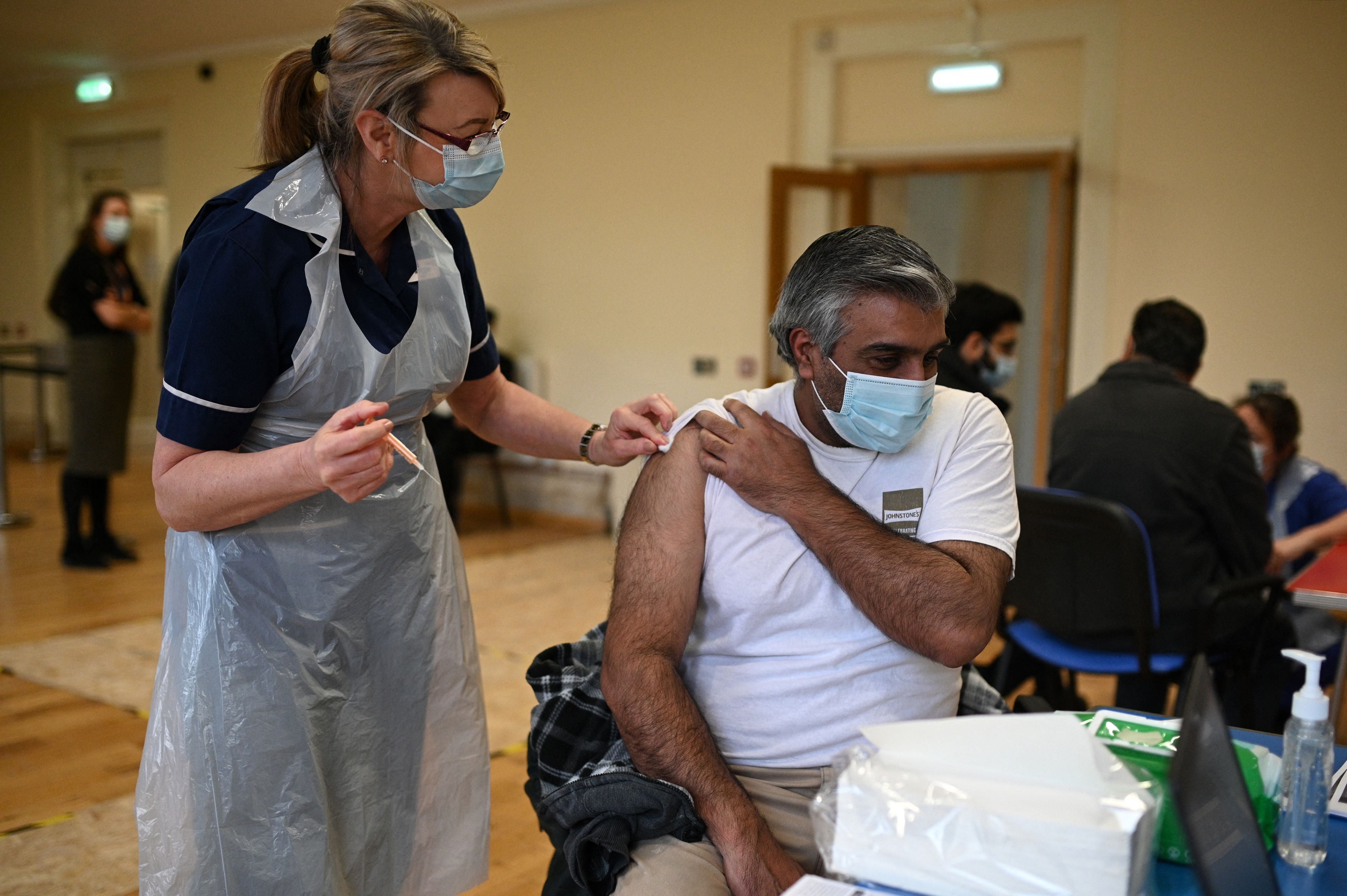Britain’s bosses back compulsory vaccination — but persuasion may yield better results
Vulnerable workers have rights too, but ‘no jab, no job’ risks a backlash and unions report positive results where managers have sought to engage with staff rather than resorting to threats, writes James Moore


Has the time come to insist on no jab, no job? Britain’s bosses certainly lean that way.
A poll conducted by the Chartered Management Institute (CMI) found that more than half (58 per cent) of the managers who took part felt that businesses in the UK should be allowed to make vaccinations mandatory for staff returning to their regular place of work. Just a third (33 per cent) disagreed.
As Britain opens up, the issue looks set to become a prime source of workplace conflict. It might ultimately end up in court. It wouldn’t surprise me if lawyers were already strategising, so it probably will.
The justice secretary, Robert Buckland, has said it is “unlikely” that bosses could make existing workers have vaccines under their current contracts. But employment contracts can be amended, especially for new joiners.
The question cuts particularly close to the bone in the health and social care sectors. Care home residents are often among the most vulnerable to the virus.
Operators also employ a high proportion of black, Asian and minority-ethnic workers and minority communities have shown some reluctance to take up vaccination offers. The minister for vaccine deployment, Nadhim Zahawi, told Sky News last month that he was “very concerned” over the numbers.
Read more:
However, as a colleague pointed out, not every person eschewing vaccination is a paid-up Facebook spreader of anti-vax lies. Minority communities have themselves suffered disproportionately from the virus, but their wariness towards the available vaccines may be rooted in mistrust of the government precisely because of the government’s behaviour towards them. Attempts at coercion will only exacerbate that mistrust.
On the other hand, employers also have a duty of care towards their clinically vulnerable staff and (in sectors like care) their customers. How should they weigh those rights against the fears other members of staff may have?
This is something they’re struggling with, as the survey makes clear. While it showed a clear majority in favour of compulsion, Ann Francke, chief executive of the CMI, called my attention to another question that was posed.
When respondents were asked if they agreed or disagreed that access to the workplace should be restricted to vaccinated members of staff, opinion was more evenly split.
Some 43 per cent agreed, but 44 per cent demurred. Francke told me she would be among the latter group, favouring persuasion over compulsion and pointing out that there are options available for safety-conscious employers. Testing, for example. She also cites “hybrid working” arrangements, in which employees spend parts of their working week working from home.
These are, anyway, likely to become the norm for people who’ve moved to home-working through the pandemic.
The TUC has been banging the “get vaccinated” drum hard but it is, as you might expect, concerned about compulsion. It also supports testing, coupled with improved sick pay for those required to self-isolate. The pandemic has exposed the problem with Britain’s miserable rate of statutory sick pay, which 2 million workers are ineligible for regardless, leaving them with a Hobson’s choice: your family or your community.
I also spoke with Unison, which has a large membership in both health and social care. A spokesperson told me that employers willing to sit down with staff and talk through their concerns would always have more success than those seeking to threaten or coerce.
“If you discover a lump, you wouldn’t look at Facebook. You’d go straight to your doctor. This is really no different,” they said. “Providing clear information and encouraging colleagues who’ve had the jab to speak to their workmates and reassure people can prove highly effective. We’ve seen this working in practice.
“Giving people the time to have the jab will also help. If you’re a care worker going to multiple homes in Haringey during the working day, your flexibility is limited. Employers need to recognise that and ensure staff have the time to get their injections.”
One of the biggest problems with compulsion is it may ultimately prove counter-productive by feeding into the destructive narratives of the social media-led anti-vax “movement” and potentially sparking a wider backlash against vaccination. That would be the worst possible outcome.

For those of us classified as “clinically extremely vulnerable”, and for those who have lost loved ones, the frustration with people reluctant to take up vaccination offers is often understandably high. It’s sorely tempting to back those who would bring the hammer down.
But persuasion will be the better route when the vaccination programme extends into younger groups, to whom the virus poses less of a risk.
While older people are the more likely to fall prey to Covid, the economic fallout has disproportionately hit the young. Unemployment is rising fast and there will be many more layoffs before it reaches its peak.
If the high rates of take-up aren’t sustained and the virus, or one of its new variants, is allowed to make yet another comeback as a result, we’ll be in lockdown again and still more jobs will go.
Employers might not legally be able to say “no jab, no job” and they probably shouldn’t be. But it’s a choice that may ultimately be forced on workers as a result of the economic crisis that the country is squarely in the middle of.
Mercifully, with the UK having delivered 25 million vaccinations and counting, it may not come to that.
Join our commenting forum
Join thought-provoking conversations, follow other Independent readers and see their replies
Comments